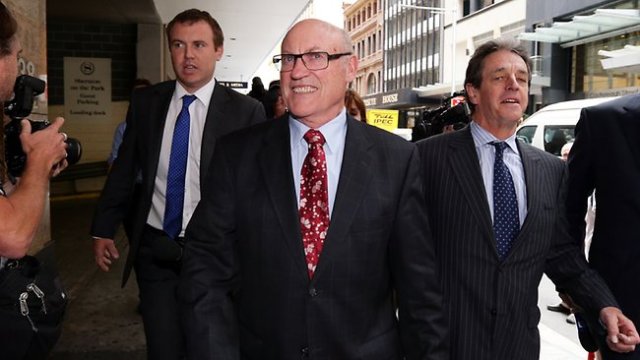
In recent weeks, the NSW Independent Commission Against Corruption (ICAC) has managed to add a number of prominent Liberal Party politicians and apparatchiks to those of the Labor Party who are accused of complicity in corrupt practices.
The commission is set to suspend its current inquiry on May 16 and resume again in August. This will allow ICAC officers to conduct further investigations into the affairs of the former Liberal police minister Mike Gallacher, who resigned in early May in the wake of ICAC allegations against him.
A final report is due in December. A state election is scheduled to take place in March next year. Counsel for Liberal politicians complained that the adjournment was unfair and the release of the final report would be too close to the election.
The latest ICAC hearings have centred on illegal donations from property developers. These were prohibited by then Labor premier Nathan Rees following an ICAC inquiry into Wollongong Council in 2009. Most of the donations that have so far been scrutinised occurred between 2009 and March 2011.
When the state’s lawmakers are found to have broken the law, it’s reasonable to assume that the public of NSW would expect that some form of punishment would follow. But in this case the law that has allegedly been breached, the NSW Election, Funding and Disclosures Act, has a three-year statute of limitations. So if the proven illegal activity is three years old, the perpetrators either get off scot-free, or prosecutors need to look at other legal actions such as conspiracy.
Many would also wonder why Eddie Obeid, Tony Kelly and Ian Macdonald, who have been found by ICAC to have acted corruptly, are yet to face a criminal court.
This is no fault of ICAC, which is set up to investigate corruption not prosecute those it may find to have acted corruptly. Prosecution is a matter for the NSW office of the Director of Public Prosecutions (DPP).
Conservative legal commentary has it that the DPP’s job is a particularly difficult one because a criminal offence must be proved “beyond reasonable doubt”, and the use of ICAC material is limited because the testimony of witnesses in an ICAC hearing cannot be used in a criminal trial.
This reasoning is spurious at best. ICAC investigations are nothing if not rigorous and any finding that an ICAC Commissioner makes would undoubtedly pass the beyond reasonable doubt test. Under the ICAC Act, corrupt conduct is defined as deliberate or intentional wrongdoing, not negligence or a mistake.
As to the limited use of ICAC material, it is only the questions and answers given at a hearing that are excluded. To suggest that it is beyond the wit and wisdom of the state’s experienced criminal barristers to prove by other means what has already been admitted is as fanciful as it is insulting.
This brings us back to the DPP, an organisation charged with prosecuting all of the state’s criminal matters. References from ICAC are a tiny fraction of these, but they sit alongside a vast array of criminal matters that range from murder to all matters of malfeasance covered by the criminal law. They have to be researched and prioritised and ICAC references find a place somewhere in the queue.
If Labor and the Coalition in NSW were serious about stamping out corruption among their own, there is a simple remedy that presents itself — establish a separate body with the sole function of investigating and prosecuting criminal charges arising from ICAC reports.
But the confected “shock” at these latest allegations by the two party leaders appears as hollow as their promises to remedy them.